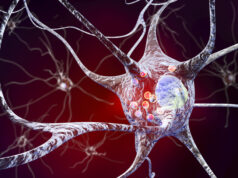
I’m pretty sure that I did not give much thought to the topic of ongoing employee education during the peak of the pandemic. Like most people in the healthcare IT industry, my team and I were just trying to figure out how to survive and to meet the unique challenges driven by COVID-19.
However, one day a colleague alerted me to the fact that although we did an excellent job of rapidly deploying our workforce to a remote support model, we failed to recognize the unique challenges associated with team leaders managing a remote workforce.
I realized that although we had previously provided staff the opportunity to work remotely on a limited basis, managing a workforce that is 100% remote was certainly different. This “ah-ha” moment led to the questions: “What shall we do about it?” and/or “Is there anything we can do about it?”.
Survey data has consistently identified an employee’s respect and confidence in their manager as a key reason for continuing employment with their current employer. With this in mind, our leadership team determined that there must be something that could be done to assist our management team in this new work environment that had been thrust upon us.
Furthermore, institutional decisions regarding the planned reduction in office space for administrative staff combined with competitive pressures from other organizations in our region clearly indicated that the remote workforce was here to stay and rapidly becoming the new normal.
As a result, preparing our leaders to successfully manage talent and work productivity was more important than ever.
We took a multi-faceted approach toward elevating our team’s remote leadership capabilities. For starters, we leveraged internal education through Penn Medicine Academy, as well as sharing the collective learnings of our IS management team.
PMA is Penn Medicine’s training center focused on employee and team development. Guidance and programs provided by PMA were instrumental in creating an educational foundation for the management of a remote workforce.
We also spent time gathering our leadership team together virtually to share their experiences, lessons learned, and exchange quick tips that allowed for leaders to learn from one another.
The realization that many colleagues were experiencing similar situations of bouncing from one remote call to another and missing that ability to simply walk down the hall to meet with members of the team was eye-opening. This sharing experience provided comfort and validation that leaders were not alone in feeling uncomfortable in this new environment.
Externally, we turned to an education development firm to design and administer a remote management training program for our leadership team. The training sessions partnered managers in groups of 12 to 15 in a four-hour session that allowed for the presentation of materials, breakout sessions, and discussion.
Recognizing that many of the remote staff experienced feelings of being confused regarding the pandemic situation and disconnected from their normal office routine, the program focused on the need for clarity of expectations, communication, and engagement.
Overall, the program rapidly elevated the leadership team to the unique skills required to manage a completely remote workforce.
An added bonus associated with our multi-faceted training approach was the feedback provided by managers identifying the challenges their employees had shared about operating in a remote manner. Recognition that technical, social, and personal challenges existed for many as they remained remote validated the need for a more personal, yet virtual touch in providing guidance to employees.
These sensitivities were heightened by the overall fear created by the pandemic and the additional workload that was required to address the unique information technology requirements of the pandemic. At times, this additional and unplanned workload contributed to an overall sense of burnout among many of the staff.
A cornerstone of our IS teams’ culture is to have an intense focus on employee needs. We consistently measure our success on a variety of metrics but zero in on overall unplanned employee turnover.
The introduction of our remote workforce management program has further sensitized our leaders to the unique needs of managing a remote workforce, expanded the management skills of our leaders, provided a solid foundation for managing the workforce of the future, and guided our entire team to enhanced levels of employee retention.
This success, combined with the reopening of many centers, positions us well to provide even more training opportunities for not only our management team but also the staff that they manage.
Mike Restuccia is chief information officer at Penn Medicine.








